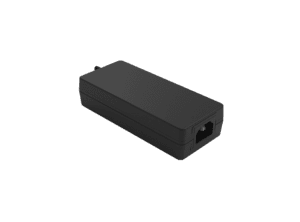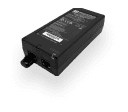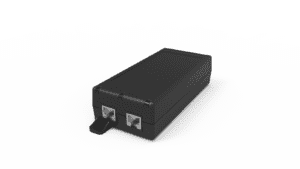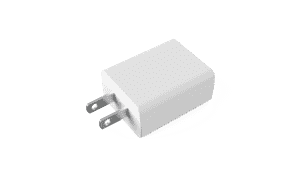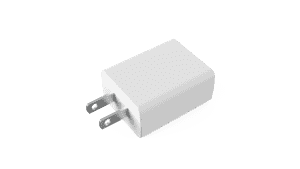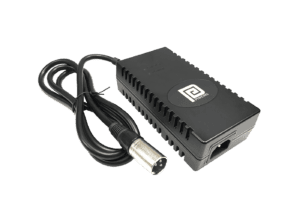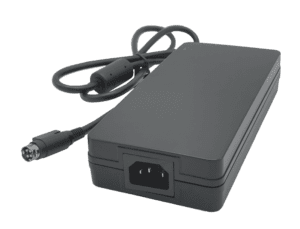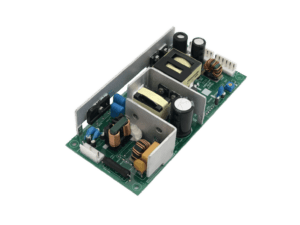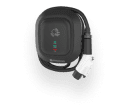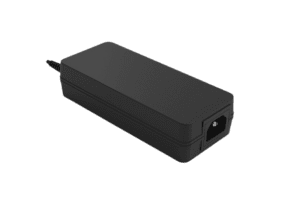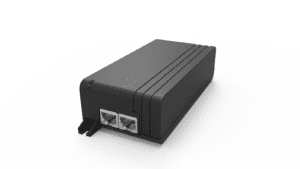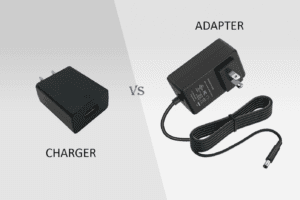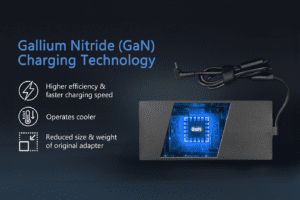BLOG
IoT Power Supply Manufacturer: How to Choose the Top Custom Power Supply Manufacturer for IoT Devices
Table of contents

Powering IoT devices isn’t just about plugging in a generic power supply—it’s about delivering safe, efficient, and reliable energy in a compact footprint. Whether you’re designing wearable medical monitors, smart home devices, or industrial sensors, choosing the right power supply manufacturer can make or break your product’s success.
IoT devices have unique challenges. They often require ultra-low standby power, compact or rugged enclosures, and global certifications to get to market. That’s why working with a custom power supply manufacturer that understands the demands of connected devices is essential.
In this guide, we’ll explore what makes a great IoT power supply partner, the benefits of custom solutions, and how to evaluate the right manufacturer for your application.
Why IoT Devices Need Custom Power Supply Solutions
From battery-powered sensors to always-on communication hubs, IoT devices have highly specialized power requirements. Off-the-shelf power supplies might cover the basics, but they rarely offer the efficiency, compliance, or integration flexibility that modern IoT applications demand.IoT devices, with their diverse functionalities ranging from battery-operated sensors to always-connected communication hubs, necessitate power supplies that can cater to their unique and specific requirements. While off-the-shelf power supplies may seem like a convenient solution, they often fall short in terms of efficiency, regulatory compliance, and the flexibility required for seamless integration into modern IoT ecosystems.
The limitations of generic power supplies become particularly evident when considering the diverse operational demands of IoT devices. For instance, battery-powered sensors require power solutions that prioritize energy efficiency to maximize battery life and extend operational autonomy. On the other hand, communication hubs that need to remain continuously active demand power supplies that can deliver a consistent and reliable power output. These specialized requirements highlight the necessity for custom power solutions that are tailored to the specific needs of each IoT application.
Key Reasons to Go Custom
- Ultra-compact size and low-profile form factors
- High energy efficiency at light loads
- Low standby power to preserve battery life
- Global compliance with UL, CE, FCC, RoHS, and DOE standards
- Environmental resilience (heat, vibration, moisture) for industrial and outdoor devices
Best Practices for OEMs
- Define power needs early during board design and enclosure planning
- Collaborate on voltage, load range, and thermal requirements
- Select a manufacturer that offers both prototyping and production scaling
When your power supply is built to fit your product—physically and functionally—you get better performance and a smoother path to market.
What to Look for in an IoT Power Supply Manufacturer
Not all power supply manufacturers specialize in IoT—and that’s okay. What matters is finding a partner with the right blend of engineering knowledge, flexibility, and compliance experience to meet your specific needs.When selecting a power supply manufacturer for your IoT devices, it’s important to remember that not all manufacturers specialize in IoT, and that’s perfectly acceptable. The key is to find a partner that possesses the right combination of skills and expertise to fulfill your specific requirements.
This means looking for a manufacturer with a strong understanding of IoT technology and its unique power requirements. They should have a proven track record of designing and manufacturing power supplies for IoT devices, and be able to demonstrate their expertise in areas such as power efficiency, miniaturization, and thermal management.
Additionally, the manufacturer should be flexible and willing to work with you to develop a custom power solution that meets your exact specifications. They should be able to accommodate your design requirements, production volumes, and delivery timelines.
Compliance is another critical factor to consider. The manufacturer should be familiar with the relevant regulatory standards and be able to ensure that their power supplies meet all applicable safety and performance requirements.
By carefully evaluating potential manufacturers and selecting a partner with the right blend of engineering knowledge, flexibility, and compliance experience, you can ensure that your IoT devices are powered by a reliable and efficient power supply that meets your specific needs.
What Sets the Right Manufacturer Apart
- Proven experience in low-wattage and embedded systems
- Customization services for voltage, cabling, footprint, and thermal management
- In-house compliance expertise for fast UL, CE, and FCC approvals
- Strong supply chain and regional production options
Best Practices for OEMs Choosing a Power Partner
- Ask about past work with similar devices or industries
- Ensure the manufacturer supports lifecycle documentation and long-term supply
- Test early with real-world conditions to optimize load handling and thermal performance
A good IoT power supply manufacturer doesn’t just ship boxes—they help solve power challenges that are specific to connected devices.
How Custom Power Supplies Improve IoT Device Efficiency
Efficiency is everything when it comes to IoT. Devices are getting smaller, smarter, and more connected—but they can’t afford to waste energy. A custom power supply helps ensure every milliwatt is used effectively, extending battery life and reducing heat.In the realm of IoT, efficiency is paramount. As devices become increasingly compact, intelligent, and interconnected, energy conservation becomes a critical concern.
Every milliwatt of power must be utilized effectively to optimize performance and longevity. This is where a custom power supply can make a significant difference. By tailoring the power solution to the specific requirements of the IoT device, it ensures that energy is not wasted, thereby extending battery life and minimizing heat generation. This enhanced efficiency not only improves the overall functionality of the device but also contributes to a more sustainable and environmentally friendly operation.
How Custom Design Improves Efficiency
- Tailored voltage conversion minimizes conversion loss
- Power factor correction improves load response
- Standby power optimization keeps devices ready without draining batteries
- Smart regulation supports dynamic loads (common in wireless modules and sensors)
Best Practices for OEMs Focusing on Energy Efficiency
- Match the power supply’s peak and typical loads to the device’s use pattern
- Use GaN or SiC components for high switching efficiency if needed
- Choose a supply with low ripple and noise to improve overall circuit stability
Custom power supplies not only enhance efficiency—they also improve performance, reduce failure rates, and create a better user experience for the end product.
CLIENT'S QUOTE
"Phihong’s PoE solutions have made a huge difference for us! Our network runs more efficiently, and we’ve seen real cost savings. We couldn’t be happier!"
Why Compliance and Certifications Matter in IoT Power Supply Design
IoT devices may be small, but the regulations they face are anything but. Whether you’re developing for healthcare, industrial, or consumer markets, your power supply must meet regional safety, efficiency, and environmental standards before your product can be sold.IoT devices, despite their compact size, are subject to a complex and stringent set of regulations. These regulations encompass a broad spectrum of requirements, including safety, efficiency, and environmental standards, and they vary significantly across different regions and markets.
For instance, if you’re developing an IoT device for the healthcare sector, your power supply will need to comply with strict safety standards to ensure patient well-being. Similarly, IoT devices used in industrial settings may need to meet specific efficiency and reliability standards to withstand harsh operating conditions. Even consumer IoT devices are subject to various regulations to ensure they don’t pose a safety hazard or cause undue environmental impact.
Therefore, before you can launch your IoT product in any market, it’s crucial to ensure that your power supply meets all the relevant regional and market-specific regulations. Failure to comply with these regulations can result in significant consequences, including product recalls, hefty fines, and damage to your company’s reputation.
Common Compliance Requirements
- UL, CE, and FCC: For product safety and electromagnetic compatibility
- RoHS and REACH: For environmental and material safety
- DOE Level VI / EU CoC Tier 2: For external power supply energy efficiency
- IEC 62368-1 or 60601-1: Depending on whether the device is IT, consumer, or medical-grade
Best Practices for OEMs
- Involve your power supply partner early to plan for required certifications
- Ensure every SKU is properly tested and labeled for regional distribution
- Work with a manufacturer that can provide full documentation and support during audits
Skipping compliance or waiting until the last minute can delay product launches and increase cost. A manufacturer that bakes certification into the design process is key to success.
Why OEMs Should Prioritize Lifecycle Support and Scalability
IoT devices aren’t “one and done”—they evolve, scale, and often need to stay in production for years. That’s why OEMs need a power supply manufacturer who offers long-term lifecycle support, not just a one-time order.IoT devices are constantly evolving and expanding, often with long production runs. This necessitates a power supply manufacturer that can offer comprehensive long-term lifecycle support beyond a single order. This support ensures compatibility, compliance, and efficiency throughout the device’s lifespan.
Lifecycle support includes design and engineering assistance to modify the power supply as IoT devices change. It also involves managing component obsolescence by finding replacements or redesigning with newer components. Firmware updates enhance performance and reliability, while technical support and troubleshooting minimize downtime. Additionally, the manufacturer stays current with regulatory changes to ensure compliance, avoiding delays for OEMs. Partnering with such a manufacturer leads to improved product performance, reduced downtime, and increased customer satisfaction.
What Lifecycle Support Looks Like
- Long-term availability of key components and assemblies
- Change control processes and advance notice on EOL (end-of-life) parts
- Firmware and hardware updates aligned with new compliance requirements
- Technical support for redesigns or product expansions
Best Practices for Scaling with a Partner
- Choose a manufacturer that supports both prototyping and mass production
- Ask about capacity planning and lead time for future volume
- Make sure documentation is maintained to support future certifications
Your power supply partner should be able to grow with you, adapting to changes in your roadmap, your market, and your customer base.
Why OEMs Choose Phihong as Their IoT Power Supply Manufacturer
Phihong has been a trusted name in power supply manufacturing for over 50 years—and today, we’re helping IoT OEMs bring smarter, safer devices to life. Our team understands the unique requirements of connected devices, from ultra-efficient energy delivery to rugged designs ready for deployment in the field.
Why Phihong Stands Out
- Expertise in designing compact, custom AC-DC and DC-DC supplies for IoT applications
- Full support for global compliance across UL, CE, FCC, DOE VI, and RoHS
- Advanced power technologies including GaN, PoE, and programmable output
- Production flexibility from prototype to high-volume deployment
- Dedicated engineering support with full design, testing, and documentation services
When you work with Phihong, you’re not just getting a power supply—you’re getting a power strategy built around your device, your goals, and your timeline.

Contact Our Team Today!
Our dedicated sales team and international partners are prepared to support you with your latest projects and initiatives globally.
Explore More with Phihong USA
As we conclude our exploration of PoE technology, it’s evident how these innovations are streamlining power and data integration across various industries. Phihong USA stands at the forefront of this technological advancement, offering a diverse range of power solutions designed to meet the evolving needs of modern industries.
Phihong USA’s extensive product lineup includes:
- Power over Ethernet (PoE) Solutions: Delivering reliable power and data transmission over a single cable, ideal for simplifying network installations and reducing costs.
- AC/DC Adapters and Power Supplies: From compact adapters to industrial-grade power supplies, Phihong provides solutions that ensure efficiency and reliability in various applications.
- Battery Chargers: Customizable chargers for lithium-ion and lead-acid batteries, supporting a wide range of power requirements for mobility and industrial applications.
- Medical Power Supplies: Specialized power solutions designed to meet the stringent requirements of the healthcare industry, ensuring safety and reliability.
Phihong USA is committed to innovation and excellence, continually developing products that meet the highest standards of performance and reliability. Their global reach and dedication to customer support make them a trusted partner in powering the future.
Here are some useful links to explore Phihong USA’s offerings further and bring in new potential clients:
Visit Phihong USA to discover how their advanced power solutions can support your business needs. Whether you’re looking to upgrade your network, or find reliable power supplies, Phihong USA has you covered.
By choosing Phihong USA, you’re partnering with a leader in power technology, ensuring your operations run smoothly and efficiently with top-tier power solutions. Contact Us today!
FAQ
What should I look for in a Top custom power supply manufacturer for IoT?
When choosing a custom power supply manufacturer for IoT, focus on experience, flexibility, and support. Look for a partner that has built power supplies for similar applications—such as battery-powered sensors, smart home devices, wearables, or industrial controllers.
You’ll also want a manufacturer that offers in-house engineering services, so they can help you optimize your design early. This includes things like thermal modeling, voltage tuning, and mechanical fit.
Flexibility is key. IoT devices often start small and scale over time, so your power partner should be ready to support you from prototype to production.
Don’t overlook compliance. Your manufacturer should understand UL, CE, FCC, and RoHS requirements and be able to provide documentation for audits or certifications. Energy efficiency (DOE Level VI or EU CoC Tier 2) is also important if your device uses an external adapter.
Finally, check that they offer lifecycle support. Will the components still be available in 5 years? Can they help you update your supply if regulations change?
A good power supply manufacturer won’t just give you a product—they’ll give you a solution that’s aligned with your product, your market, and your long-term plans.
How do custom power supplies improve IoT device performance?
Custom power supplies improve IoT device performance by delivering exactly the energy your device needs—no more, no less. This means better efficiency, lower heat, and more stable performance.
Unlike generic supplies, custom units are built to match your device’s voltage and current requirements. This helps maintain stable power delivery, even when your device has fluctuating loads like communication bursts or sensor triggers.
Custom supplies also tend to be smaller and thermally optimized. That means you can fit them into tighter spaces, reduce your cooling needs, and improve overall reliability—especially important in sealed or portable products.
Another big benefit is better power efficiency. Many IoT devices operate in low-power or sleep modes for long stretches. A custom supply can be optimized for those states, reducing standby power consumption and extending battery life.
Finally, custom power supplies can include additional features like integrated EMI shielding, remote monitoring, or programmable output—features that help your device run smarter, longer, and safer.
In short, custom power equals better integration, higher efficiency, and longer-lasting devices.
What certifications should my IoT power supply have?
Your IoT power supply should be certified based on your target market and application type. At a minimum, most power supplies need:
- UL (for North American safety compliance)
- CE (for EU safety, health, and environmental standards)
- FCC (for electromagnetic interference in the U.S.)
- RoHS (to meet environmental regulations in Europe)
- DOE Level VI (for energy efficiency of external supplies)
If your device is medical or industrial, you might also need:
- IEC 60601-1 for medical equipment
- IEC 61010-1 for laboratory or industrial use
- IP ratings for waterproof or dustproof performance
Certifications ensure your power supply won’t interfere with other electronics, pose safety risks, or violate environmental laws. But they also protect your business—without them, you might not be able to ship your product into key markets.
A trusted manufacturer will help identify what certifications you need and provide all the test reports and labeling to pass inspections.
Can I use a standard power supply in my IoT product?
You can use a standard power supply in an IoT product—especially during early prototyping—but it may not be the best choice for final production.
Standard power supplies are typically designed for general-purpose electronics. They may be physically larger than you need, inefficient during standby, or lack the safety features required in regulated environments.
Also, off-the-shelf supplies aren’t optimized for your device’s unique voltage or load profile. That can lead to excessive heat, shorter battery life, or unstable performance when your device wakes up, transmits, or performs a burst of activity.
When it comes time for certification, generic supplies may not meet the necessary UL, CE, or FCC standards for your target market, which could delay your launch or require a redesign.
Custom supplies, on the other hand, are built to your exact specs. They’re smaller, more efficient, and easier to integrate. And they often come with better documentation and long-term support.
So while a standard supply might get you through early development, a custom solution is usually the better move for commercial success.
Why do OEMs trust Phihong for custom IoT power supply solutions?
OEMs trust Phihong because we combine decades of power supply experience with a deep understanding of IoT technology and compliance. Our team helps OEMs build reliable, efficient, and fully certified power supplies for everything from smart cities to wearable health monitors.
We don’t just offer products—we offer solutions. That means we help you design, prototype, and certify your power supply to meet your exact needs. Whether you’re building a low-power sensor or a smart gateway, we offer the right form factor, output specs, and documentation to support your launch.
Phihong supplies are certified for UL, CE, FCC, RoHS, and DOE Level VI standards. We also support custom labeling, mechanical design, and embedded features like programmable output or thermal protection.
Our global manufacturing capabilities—including production in Vietnam—mean we can support your supply chain with quality and scale, from pilot runs to full-volume deployment.
OEMs partner with Phihong not just for power—but for peace of mind. From design to delivery, we help power the next generation of connected products.

